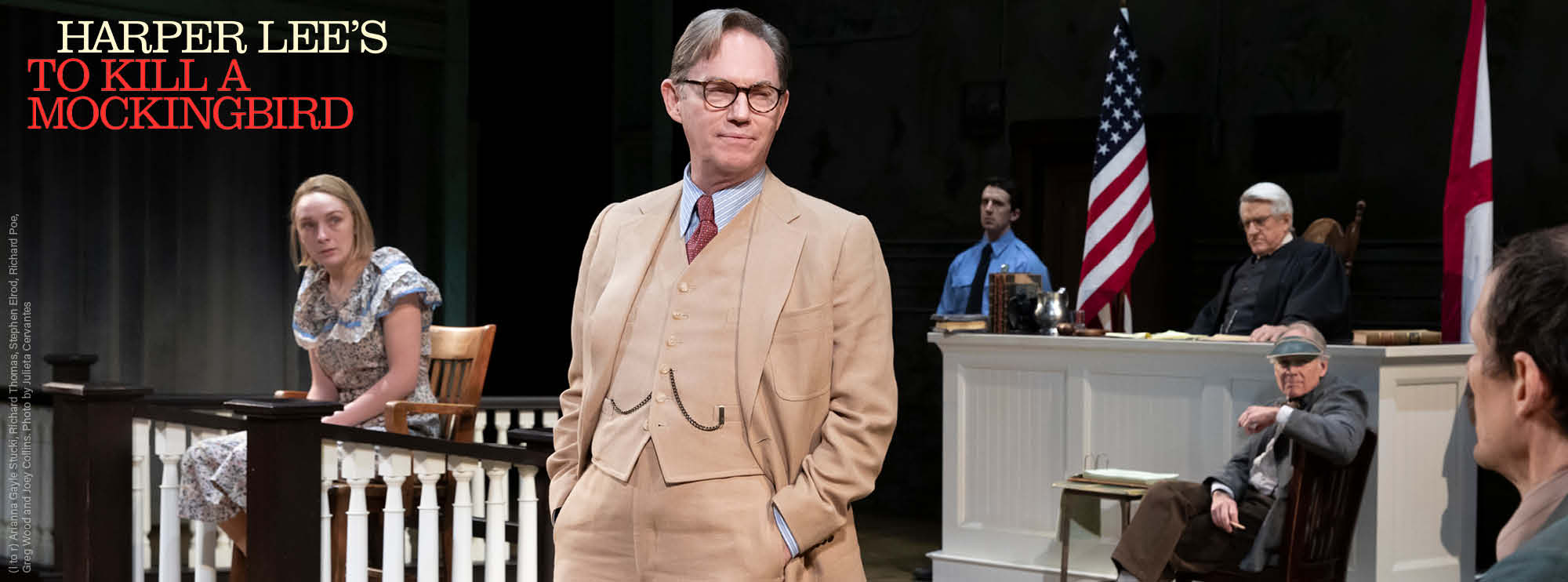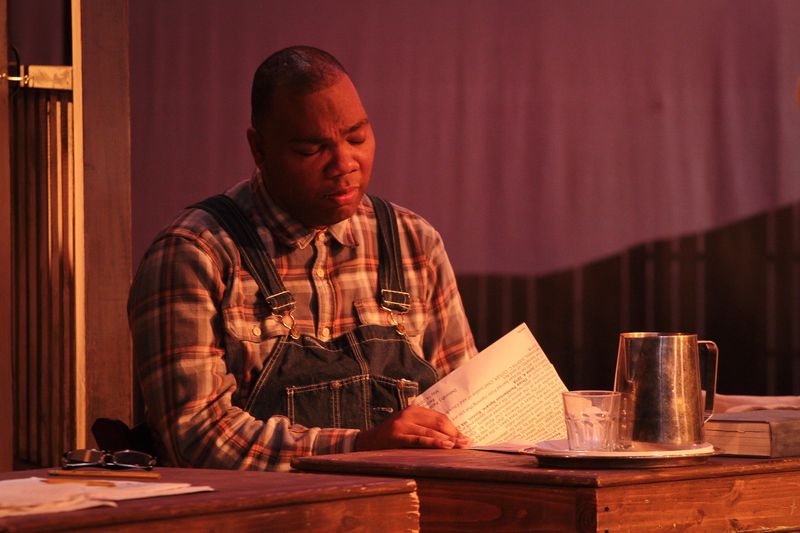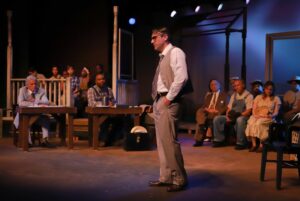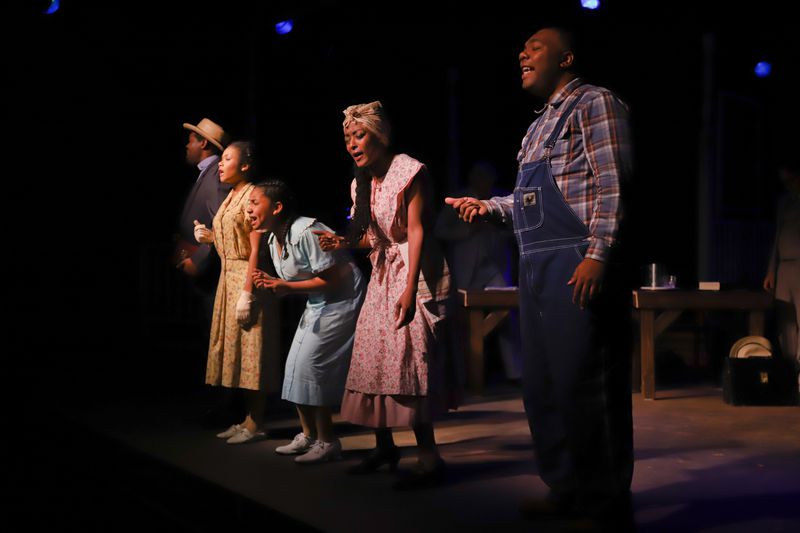By Sue Morgan
Harper Lee’s classic novel To Kill a Mockingbird played a pivotal role in awakening the social consciousness of countless Americans as they studied the story in middle school and high school English classrooms across the nation. It holds a secure place, among others, at the very top of the Western literary pedestal as it tackled, with clear-eyed accuracy, the issue of racial injustice in this country.
Award-winning writer Aaron Sorkin (The West Wing, among many others) said he knew when he was asked to adapt Mockingbird for the stage, that “…there was no way I could get out alive.” Despite his early trepidation, Sorkin’s adaptation was a Broadway hit and has gone on to tour the country. It’s playing through October 9th at the Golden Gate Theatre in San Francisco.
…the national touring production in San Francisco felt tone deaf and oddly flat…
Sorkin did not have free rein in reimagining the story. His earliest attempt raised the ire of the Lee estate, which launched a lawsuit contending that the playwright had gone too far in modifying both the character and behavior of beloved Atticus Finch, the story’s kind-hearted, principled lawyer, played in the national touring production by Richard Thomas.
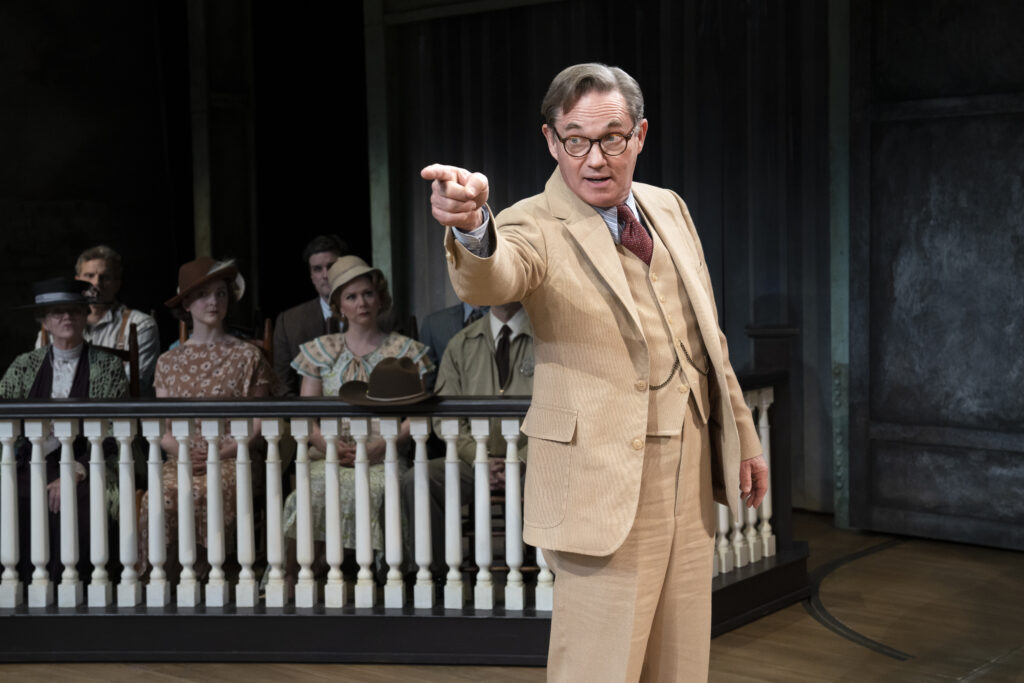
To move forward with the adaptation, Sorkin had to tone down his initial vision to meet the conditions set out in the suit. Given those constraints and believing that the original story, first published in 1960, did not stand the test of time, Sorkin made Atticus the primary protagonist, and dispersed the duty of narrator among Scout (Melanie Moore), her brother Jem (Justin Mark) and their friend Dill (Steven Lee Johnson).
He also gave additional voice to Calpurnia (Jacqueline Williams), the Finch family maid, and to Tom Robinson (Yaegel T. Welch), a black man unjustly accused of rape by a white woman.
While this sounds reasonable in theory, to this reviewer the national touring production in San Francisco felt tone deaf and oddly flat, despite its fraught content and the beautiful careening of Scout about the stage.
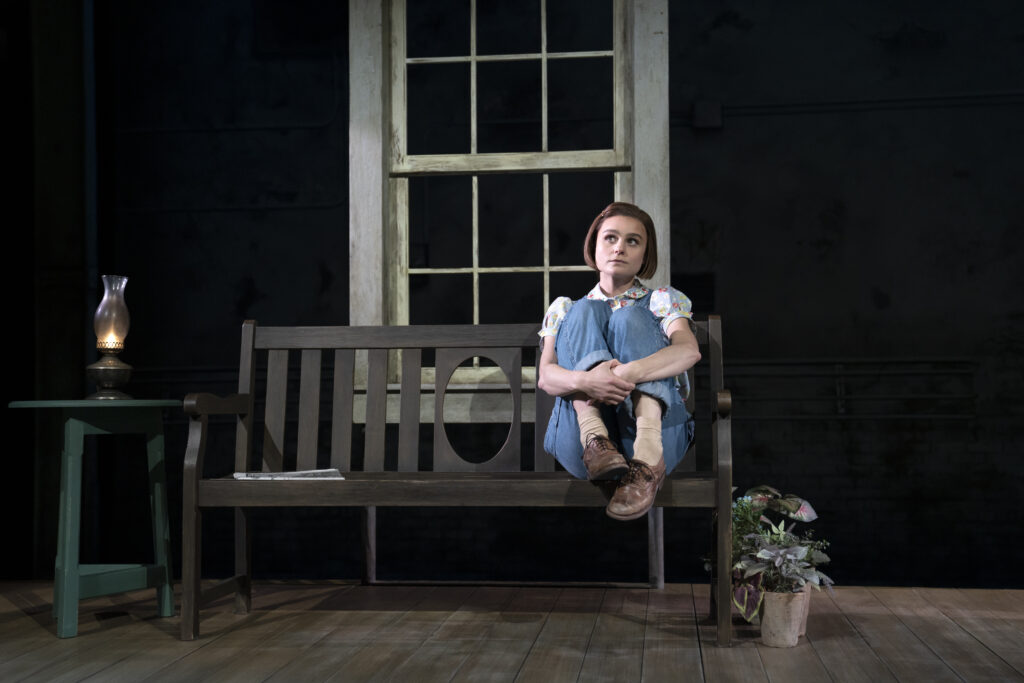
Sorkin stated in an interview that, “Using black characters simply as atmosphere in 2022, it’s not only noticeable, but more importantly, it’s a waste because these two characters’ voices should be heard.” Sorkin therefore gave Calpurnia a few lines in which she was able to vent her feelings about Atticus’ philosophy of treating everyone (including rabid bigots) with respect, and her resentment of being expected to be sufficiently grateful to Atticus for agreeing to represent Tom Robinson in the first place.
These sentiments were no doubt in play in the minds of subjugated peoples at the time the novel was written, but Harper Lee understood that a black servant in 1936 Alabama would not have risked speaking them aloud to any white person, no matter how kindly they appeared to be. She was not using her black characters as “atmosphere,” but was accurately portraying their inability to give voice to their own inner fury for fear of risking their lives.
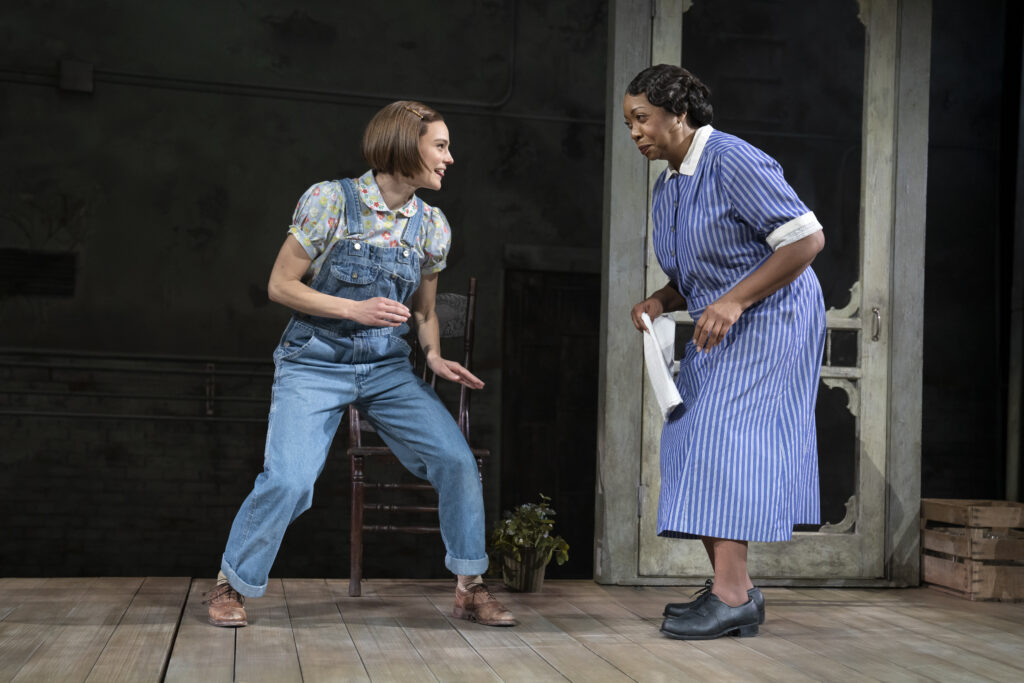
A lot a mansplaining took place, particularly around every potentially poignant moment. When Tom Robinson explained that he helped his accuser with her chores because he felt sorry for her, Sorkin had Atticus explain to the jury that Tom Robinson knew that it wasn’t appropriate for a black man to express feeling sorry for (and therefore, superior to) a white woman, but did so anyway as a means of reclaiming his own sense of dignity. These sorts of heavy-handed explanations felt unnecessary and contrived.
In terms of direction, there was also a strange sense of disconnect when the character Boo Radley was played by the same actor (Travis Johns) who earlier played Mr. Cunningham (to very good effect). Because no attempt was made to alter his appearance from that of the previous character, it felt somewhat confusing to see him appear from behind a door when those who were familiar with the novel were expecting Radley. Had there been obvious previous instances of someone playing multiple characters, it may have worked but, as that was not the case, it just seemed odd.
Sorkin added humor to the production. While there were many humorous scenes in the novel, they were primarily centered on the antics of the children and felt organic and in context. Sorkin’s humor involved jokes (Dill explaining that he won Jem’s pants playing strip poker, “but only with the men”) and exaggerated facial expressions by Calpurnia, meant to evoke laughs, which felt not only inappropriate, but almost obscene to this viewer as they appeared meant to convey her exasperation (rather than anger) with what the white folk were saying now.
It was as if Sorkin forgot that the piece is a drama. Or perhaps he couldn’t imagine a contemporary audience having the fortitude to hold space for the unrelenting injustice unfolding before them. Whatever his motivation, it undermined what should have been a roiling sense of outrage at the conclusion of the play. Instead we are left with a mild and wholly bearable sadness.
-30-
 Contributing Writer Sue Morgan is a literature-and-theater enthusiast in Sonoma County’s Russian River region. Contact: sstrongmorgan@gmail.com
Contributing Writer Sue Morgan is a literature-and-theater enthusiast in Sonoma County’s Russian River region. Contact: sstrongmorgan@gmail.com
| Production | To Kill a Mockingbird |
|---|---|
| Written by | Adapted by Aaron Sorkin from the Harper Lee original |
| Directed by | Bartlett Sher |
| Producing Company | National Touring Production / Broadway SF |
| Production Dates | Through Oct 9th |
| Production Address | Golden Gate Theatre 1 Taylor Street San Francisco, CA 94102 |
| Website | www.broadwaysf.com |
| Telephone | (888) 746-1799 |
| Tickets | $56 – $256 |
| Reviewer Score | Max in each category is 5/5 |
| Overall | 3/5 |
| Performance | 4/5 |
| Script | 3/5 |
| Stagecraft | 3/5 |
| Aisle Seat Review PICK? | ---- |

